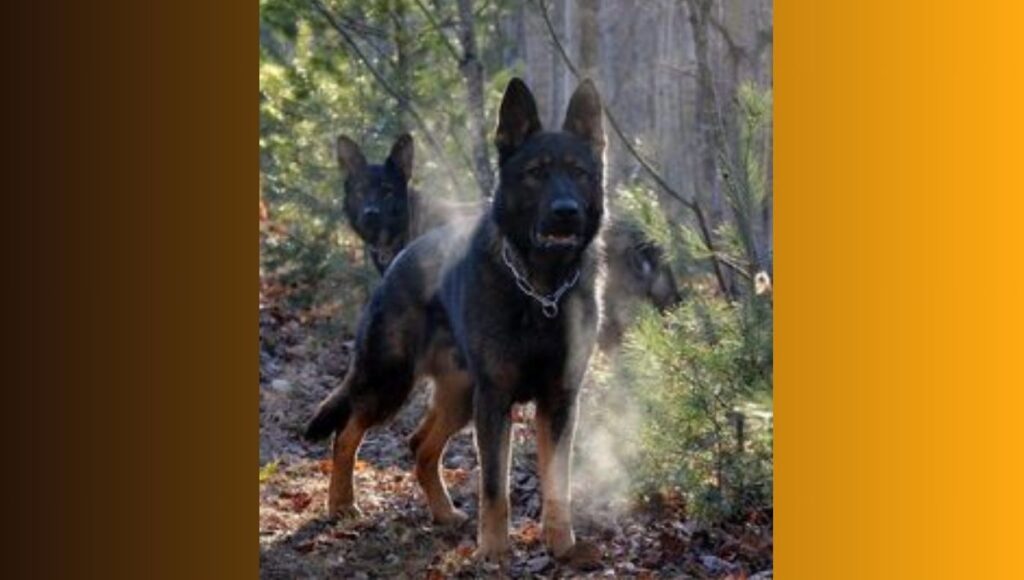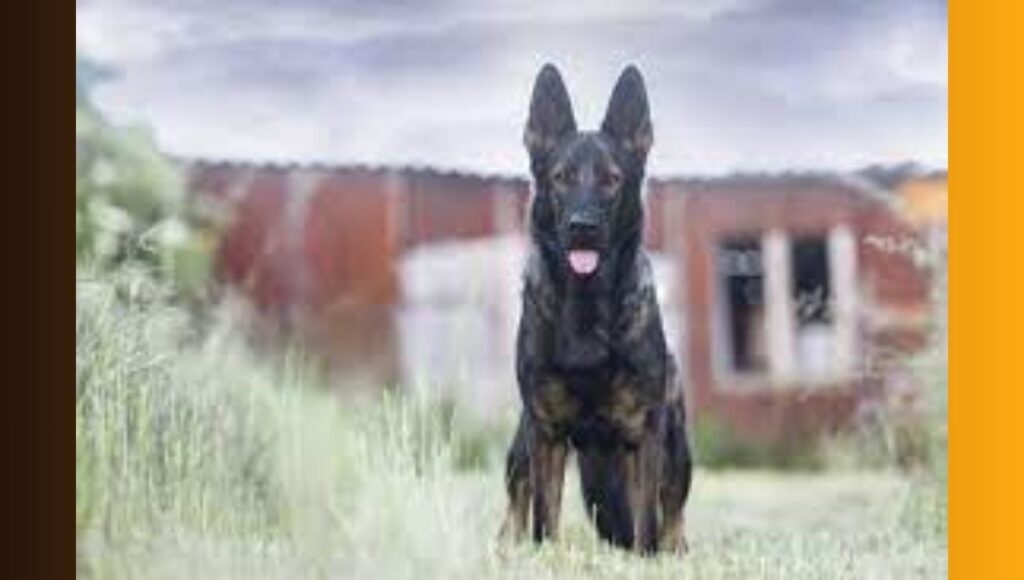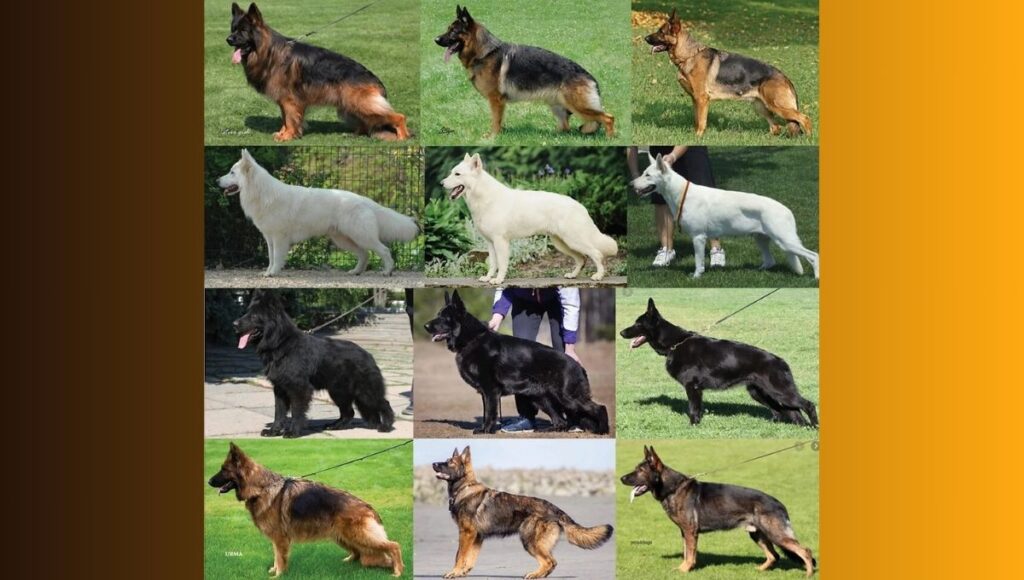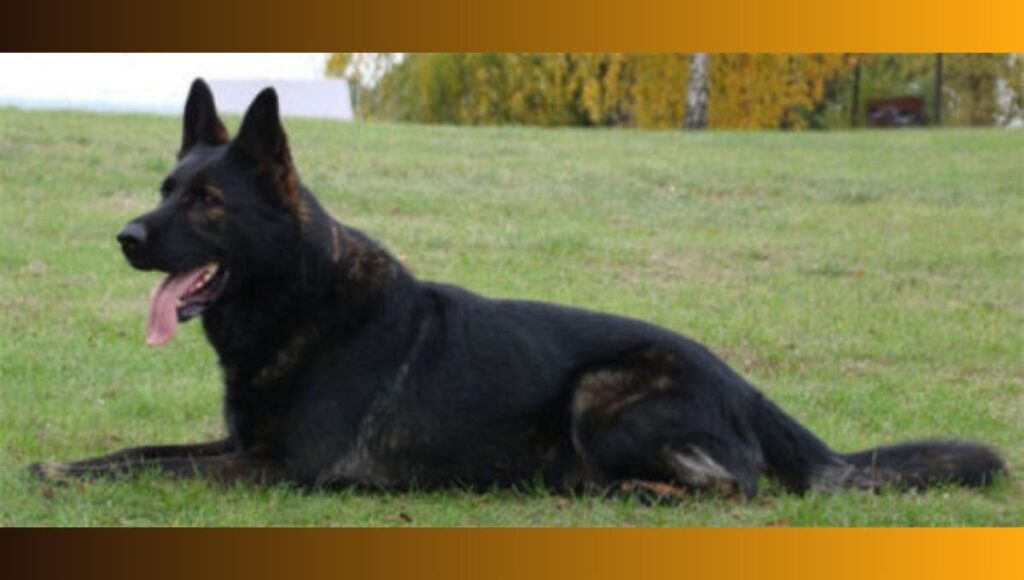DDR German Shepherd: Ultimate Loyal Companion Unleashed!
In a world where dog breeds often get pigeonholed into stereotypes, the DDR German Shepherd stands out as a remarkable testament to the fusion of history, purpose, and loyalty. Originating from East Germany during the Cold War era, this distinctive strain of the German Shepherd was meticulously bred for specific traits that catered to police and military work. With their striking appearance and unmatched intelligence, DDR German Shepherds have captured the hearts of enthusiasts.
Key Traits and Temperament

The DDR German Shepherd is renowned for its unique blend of traits and temperament, reflecting its roots in East Germany’s rigorous breeding programs. These dogs are characterized by their remarkable loyalty and protective instincts, making them excellent guardians for families and properties alike. DDR German Shepherds are known for their calm demeanor combined with an innate eagerness to please. This balance of serenity and focus allows them to excel in various roles, including search-and-rescue operations.
Physical Features of DDR Line

The DDR German Shepherd stands out with a unique physique that sets it apart from other variants. Characterized by its larger frame, broad skull, and well-defined musculature, this breed exudes strength and athleticism. Their body is slightly longer than it is tall, which allows for impressive agility, a trait that has been meticulously bred into them over the years for working purposes. The coat of a DDR German Shepherd often features rich tones of black and tan or sable markings, giving them an eye-catching appearance that highlights their imposing stature.
Beyond just aesthetics, the physical attributes of the DDR German Shepherd reflect their functional capabilities in roles ranging from police work to search-and-rescue missions. Their strong bones and powerful limbs enable these dogs to excel in demanding environments where endurance is key.
Working Roles and Specializations

When it comes to training and working roles of the DDR German Shepherd, their specialization sets them apart from other breeds. Originally developed in East Germany for police and military work, these dogs embody traits such as intelligence, loyalty, and a strong drive to serve. Their natural athleticism allows them to excel in various fields, including search and rescue operations and protection work. What’s particularly fascinating is how these dogs adapt their skills within specific environments; for instance, some may flourish in tracking scent trails while others might shine as detection or therapy dogs.
Best Practices for DDR German Shepherd

When it comes to nurturing a DDR German Shepherd, appropriate training and socialization are paramount. These dogs thrive in structured environments where they can channel their intelligence and energy effectively. Incorporating positive reinforcement techniques such as treats, praise, or play can significantly enhance your dog’s ability to learn commands while fostering a strong bond between you and your pet.
Another best practice is ensuring a balanced diet tailored to the specific needs of DDR German Shepherds. Given their impressive build and characteristic drive for activity, it’s crucial that their nutritional regime supports lean muscle development without leading to obesity, a common concern for larger breeds. Supplements such as glucosamine can be beneficial for maintaining joint health as they age; always consult your veterinarian before introducing any changes in diet.
Common Health Issues and Care Tips

Common health issues in DDR German Shepherd can range from hip dysplasia to skin allergies, making it essential for owners to stay informed and proactive. Hip dysplasia, a genetic condition where the hip joint doesn’t fit snugly into the hip socket, is particularly prevalent in large breeds. Regular vet check-ups and maintaining a healthy weight through proper diet and exercise can significantly reduce its impact. It’s wise to incorporate joint supplements rich in glucosamine and omega fatty acids.
Skin allergies are another concern for these dogs, often triggered by environmental factors or specific ingredients in their diet. To manage this, consider an elimination diet to identify potential allergens while also keeping your dog’s coat clean and free of irritants with regular grooming sessions.
DDR vs. Other German Shepherd Lines

When comparing DDR German Shepherd to other lines, such as American and West German working lines, it’s essential to understand the distinct purpose that each line serves. The DDR (Deutsche Demokratische Republik) line emerged from East Germany, specifically bred for rigorous police and military tasks. This focus on functionality led to a more robust body structure, emphasizing endurance and a strong work ethic traits that are highly prized in protection and service scenarios. Unlike the American show lines which prioritize appearance over working ability.
Where to Find DDR Puppies

When searching for DDR German Shepherd puppies, it’s essential to look beyond the usual sources. Reputable breeders often participate in breed-specific clubs or organizations that focus on working-line characteristics. Websites like the East German Shepherd Association can provide valuable resources and leads on breeders who uphold these lineage standards, ensuring you find a puppy that’s both healthy and true to the DDR traits.
Conclusion
The DDR German Shepherd stands out as a remarkable breed known for its strong work ethic and exceptional intelligence. Originating from East Germany, these dogs were specifically bred for their prowess in protection and obedience tasks, making them ideal companions for law enforcement and active families alike. As with any breed, it’s essential to understand their specific needs and characteristics to provide proper care and training. If you’re considering adding a DDR German Shepherd to your family, be prepared for an incredible journey filled with companionship and adventure!
FAQs
1. What does DDR stand for in DDR German Shepherd?
DDR stands for Deutsche Demokratische Republik, which refers to East Germany. DDR German Shepherds are known for their distinct breeding focus on working qualities.
2. How do DDR German Shepherds differ from other types of German Shepherds?
DDR German Shepherds typically have a sturdier build and a more stable temperament, as they were bred primarily for work and protection rather than show.
3. Are DDR German Shepherds suitable as family pets?
Yes, with proper training and socialization, DDR German Shepherds can make excellent family pets, being loyal, protective, and good with children.
4. What is the typical lifespan of a DDR German Shepherd?
The average lifespan of a DDR German Shepherd ranges from 10 to 14 years, depending on genetics, health care, and living conditions.
5. Do DDR German Shepherds require special training?
While they don’t need specialized training beyond standard obedience techniques, they thrive with consistent leadership due to their intelligent and strong-willed nature.
6. How much exercise do DDR German Shepherds need daily?
These dogs require at least 1-2 hours of physical activity each day to stay healthy and happy; activities can include walking, running, or engaging in dog sports.
7. What should I feed my DDR German Shepherd?
A high-quality dog food that meets their nutritional needs is essential; look for options rich in protein and tailored for large breed dogs to support their growth.
8. Are there any common health issues associated with DDR German Shepherds?
Like all breeds, they may be prone to certain health issues such as hip dysplasia or elbow dysplasia; regular vet check-ups can help monitor their health effectively.







